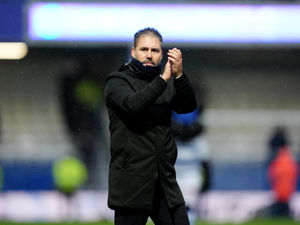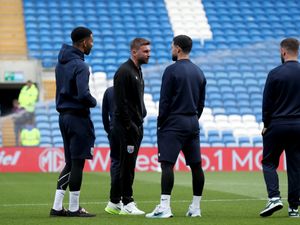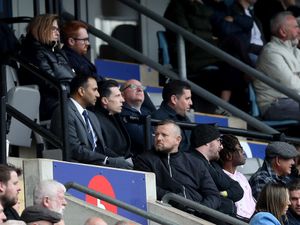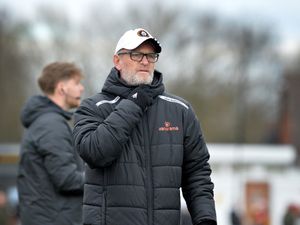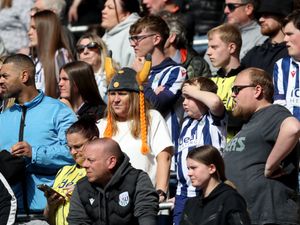Big Interview: The key West Brom men with football world at their fingertips
Fans have been delighted with the start Slaven Bilic has made since his appointment as West Brom’s head coach.
With the Croatian leading the way and assistants Dean Racunica, Danilo Butorovic, Julian Dicks and Gary Walsh all cutting animated figures on the touchline, the Baggies are in excellent hands.
But there is another team – sitting in their own kind of dugout – that are also playing a massive role in the team’s success this year, writes Joseph Masi.
Head of analysis Gerard Moore and opposition analyst Adam Johnson are the men responsible for making sure Bilic and his team know everything there is to know about their opponents.
Armed with laptops, tablets, cameras, radios and a bank of statistics, the duo’s job is to watch, re-watch and watch again the teams and players West Brom are about to come up against.
Working in excess of 70 hours a week, they then produce video clips to ensure that there are no surprises on a match day for Bilic and his team.
An example at just how much detail they go into can, perhaps, best be seen with the point Albion gained at Derby earlier this season.
That match ended 1-1 with Martyn Waghorn scoring a penalty for the Rams but seeing another spot-kick saved by goalkeeper Sam Johnstone.
“One of the things we noticed when preparing for Waghorn was that when he has two penalties in a game, he tends to go a different way for the second one,” Moore said.
“We look for little bits of information like that and then hope it will help Sam on the day. The job is all about little differences like that.”
To understand the role of an analyst, Moore explained his working week on the basis Albion are playing Saturday to Saturday.
“Monday is generally focused on post-match,” he said.
“It’s reflective. The coaches will have watched the game again. I will have put lots of different clips together.
“And then we come together to discuss the game, our thoughts and any information we have found.
“We look at our game plan, the things we have done right and wrong.
“And then there are packages we put together for the players – to show them things about their game and things that relate to the team.”
From Tuesday onwards, Moore and Johnson are completely focused on the opposition – with the duo going into extraordinary detail to give Albion the best possible chance of obtaining a result.
“The opposition analysis is very in-depth,” Moore continued.
“On average we go through five opposition games – but we sometimes do more depending on how they set up, what formation they use and how they have set up against teams similar to ourselves.
“We break that down and clip every bit of the game we feel is significant.
“We work through the thirds both in possession and out of possession.
“We start with the goalkeeper, how they build-up play.
“We look at mechanisms of play as to how they build as a team. Then as we get to the final third we look at the shape of the team and how they are able to score and the key individuals in that.
“Then we look at them out of possession. How do they block from goal-kicks? How do they defend in the attacking third, the middle third, the defensive third?
“And then with that we can see how they set up against different systems and how well they have been doing in their own system.”
Once the tactics of the opposition have been assessed, the information is then relayed to the players at a team meeting held 24 hours before the game.
“The meetings are a bit similar to what you see on Sky Sports with the interactive boards,” Moore continued. “Fortunately we have a group of players who take a lot of detail on.
“Alongside that we also have a set-play video that the players watch. We go into a lot of detail on that.
“And we also produce an opposition report which is focused on the statistical side of the opposition, the information ranges from squad information to referee analysis”
After the meeting assessing the opposition’s tactics, Moore and Johnson give each member of Albion’s squad clips of the player they are likely to be in direct competition with.
“We give packages on who our players will be up against individually and we give them notes on them as well,” Moore said.
“It allows them to do some self-analysis really.
“They get them the day before the game so they have around 24 hours to watch them.
“We usually stay in a hotel the day before a game so they watch them when they get a bit of quiet time.”
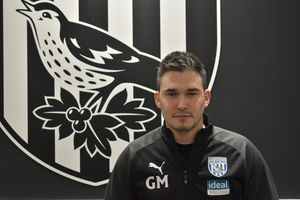
Despite the staggering amount of hours that go into it, Moore joked it isn’t until match day that the analysis team really comes alive.
“It all comes alive when the team sheets come in,” he said. “I review it and look at it compared with the information we have put together.
“I’ll look at how they are likely to set up.
“With the work we have done before hand, we are very confident we know how they are going to set up.
“I will discuss with the manager how they are going to set up and how they are going to try and counteract us.
“Then we move on to set-plays where we support Danilo in his approach to the set-plays.
“And then it’s kick-off.
“We are all set up to film – we are set up in our own kind of dugout high up and I’m the person, via radio, who is in Danilo’s (Butorovic) ear.
“And during the game, I create clips of key things to review and send them down to his iPad.
“It could be how we are building up – pockets of space that we can be exploiting.
“Then at half-time we have an iPad to show the players what we need to.
Moore believes it’s important his findings are communicated via the coaches.
“I go through them – I believe it should be coach led,” he continued. “It has to be their decisions. They are the ones leading this team.
“But I support them with any key information I can find.
“That then continues in the second half. What tends to be key in the second half is substitutions.
“If I see anyone warming up, I’ll speak to Danilo and explain how I think this could change their shape.
“We are here to help the coaches as much as we can.”
As soon as the game finishes, the analysis team provide statistical and video feedback to the coaches and players but focus quickly shifts to the next match on the journey home.
But while the work is relentless, Moore – who joined Albion after spending 18 months working with Mauricio Pochettino at Tottenham – says he loves every minute of it.
“It is hard to juggle a life outside of football,” he added.
“But you know that when you sign up for it – if you don’t want to give up that social side this isn’t for you.
“What this job does give you, though, is incredible experiences of being involved in a team.
“You are a huge part in a side that is chasing to get to the Premier League and it is fantastic when you are involved in wins.
“You do miss a lot of things with your friends and family.
“But you just have to make the most of the international break.
“I do love it and feel very fortunate because Albion is a fantastic place to be.”

